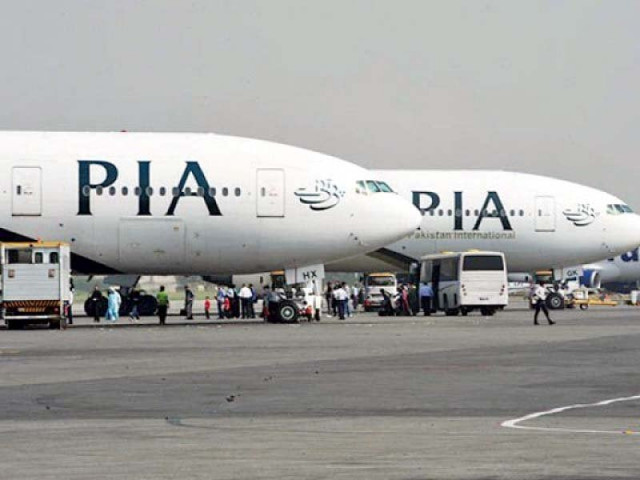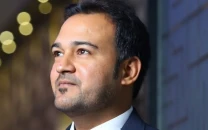PIA privatisation, FBR restructuring greenlit
Sources said the privatisation secretary briefed the premier on the possibility of privatising PIA by June 15

Prime Minister Shehbaz Sharif on Wednesday approved the privatisation of Pakistan International Airlines (PIA) before June 15 and also endorsed the restructuring plan of the Federal Board of Revenue (FBR), which had been cleared by the caretakers.
The PML-N’s government on Wednesday carried forward the leftover work of the Special Investment Facilitation Council (SIFC) and the interim setup, marking the continuation of the previous setup’s policies.
Former Finance Minister Ishaq Dar finally joined the PM’s meetings on economic issues after initially avoiding them. Muhammad Aurangzeb, who is being tipped as the Special Assistant to the Prime Minister (SAPM) on Finance, also attended the meeting.
Sources said the privatisation secretary briefed the premier on the possibility of privatising PIA by June 15. However, the deadline was subject to the timely implementation of the scheme of arrangement to divide the national flag carrier into two entities and park Rs622 billion debt in the new holding company.
The scheme of arrangement cannot be implemented until the PIA’s creditors give the no-objection-certificates, the PM was informed.
Sources said the prime minister instructed the privatisation secretary to further shorten the period required to sell off the entity.
In 2022, PIA stood as Pakistan’s third-highest public sector loss-making entity, requiring Rs11.5 billion per month solely for servicing its debts.
In a significant development, the prime minister also endorsed the FBR’s restructuring plan, which had previously received approval from the caretaker government but faced halts in its implementation by the court and the Election Commission of Pakistan (ECP).
The approved restructuring was contrary to the manifesto of the PML-N that had promised to separate the customs department from the FBR and place it under a ‘to-be-created’ economy ministry.
A day earlier, the premier had directed the hiring of foreign consultants to modernise and digitise the FBR. It was decided on Wednesday that the foreign consultants would work on the entity’s digitisation drive. The prime minister expressed dissatisfaction with the proposal to involve the National Database Registration Authority (Nadra) in the digitisation exercise.
According to the approved plan, the FBR will cease to exist and two new organisations – the Federal Customs Board and Federal Inland Revenue (IR) Board – will be created. In addition, the newly formed bodies will be placed under the Revenue Division.
Former finance minister Dr Shamshad Akhtar had initiated the FBR restructuring exercise. The scope of restructuring was wide-ranging. Its implementation will require amendments to various tax statutes and related laws, enactment of legislation for the two new organisations, and changes in the respective rules as well as the Rules of Business 1973.
Changes would be required in connection with the budget and expenditure allocations for the two organisations, establishment of new administrations, and division of the existing assets between them.
The customs and Inland Revenue organisations will be separated, with each headed by a director general (DG) to be appointed by the federal government from their respective service cadres for a fixed tenure. The two establishments will be the attached departments of the Revenue Division.
The DGs will have administrative, financial and operational autonomy including budgeting as well as posting and transfers for their respective establishments.
All matters related to international taxes; valuation of goods and assets; IT and digitisation, policies in connection with the data exchange between the two DGs, and human resource will also be placed in Revenue Division. Decisions will be made jointly based on consultations with both the DGs.
The determination of value for imported goods through valuation rulings will be carried out by a committee comprising equal representation from customs and IR and placed before the Revenue Division.
Former finance minister Ishaq Dar did not object to the FBR restructuring plan. Aurangzeb commented in the meeting that he was satisfied with the design aspect of the restructuring plan. The prime minister asked to finalise a timeline to implement the restructuring of the organization.
The premier instructed that if necessary, any procurement-related matters should be brought to the SIFC for fast-track implementation of the restructuring. The SIFC has the authority to grant waivers against any rule or law.
Dr Shamshad also attended the meeting. She informed the prime minster that the FBR was losing Rs3.5 trillion in revenue annually, with the majority stemming from sales tax and the income tax.
Additionally, the revenue losses from custom duties amounted to Rs600 billion.Dr Shamshad further stated that about 56 per cent income tax return filers were not paying any income tax, adding that only 200,000 taxpayers were bearing the burden of the 90 per cent tax payment.
The FBR’s tax to GDP ratio was 8.5 per cent, which Dr Shamshad said could reach to 10.8 per cent in the next fiscal year with the implementation of the restructuring plan.
Her assertion was that by improving the compliance alone, the FBR’s revenues could be enhanced by Rs1.7 trillion in the next fiscal year.



















COMMENTS
Comments are moderated and generally will be posted if they are on-topic and not abusive.
For more information, please see our Comments FAQ